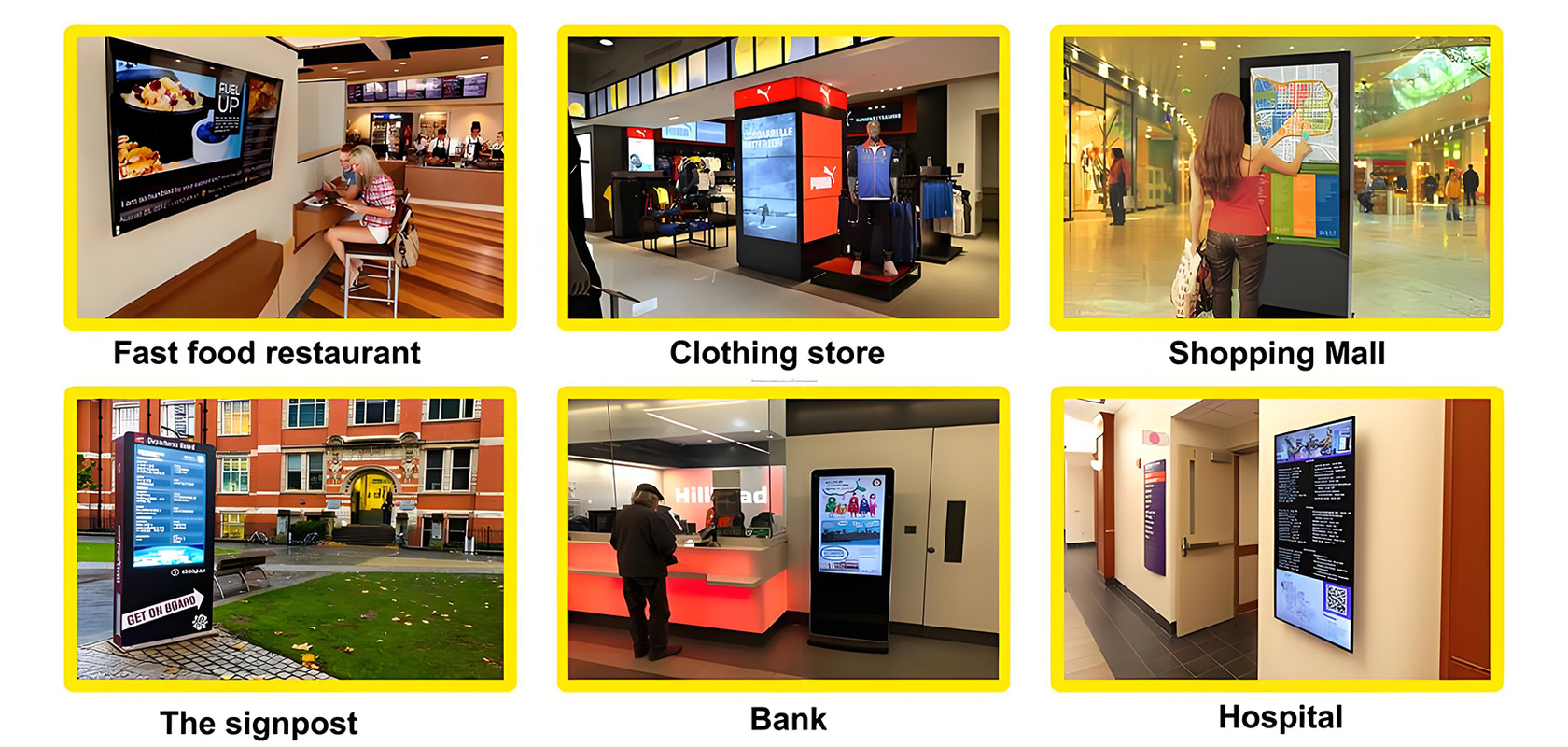The Role of AI in Modern Digital Signage Systems
The Role of AI in Modern Digital Signage Systems.Artificial intelligence (AI) has revolutionized various industries, and digital signage is no exception. In the realm of modern digital signage systems, AI plays a pivotal role, enhancing the functionality, efficiency, and personalization of these systems beyond traditional methods.

Digital signage, in essence, refers to electronic displays used for advertising, information, or entertainment. These systems have evolved significantly in recent years, incorporating advanced technologies like AI to improve their effectiveness. AI not only allows for more dynamic and interactive content but also enables the system to adapt and learn from user behavior, providing a more personalized experience.
One of the key advantages of AI in digital signage is its ability to analyze vast amounts of data in real-time. This includes viewer demographics, traffic patterns, and even weather conditions. By processing these data, AI algorithms can adjust the displayed content accordingly. For instance, if a digital sign is placed in a shopping mall, AI can analyze the foot traffic and adjust advertisements based on the time of day, day of the week, or even the seasonal trends.
Furthermore, AI-powered digital signage systems can integrate with social media platforms, pulling in real-time data to display trending topics or hashtags. This level of dynamism ensures that the content remains fresh and engaging, attracting more viewers and potentially increasing the effectiveness of advertisements or information dissemination.
Interactive digital signage, powered by AI, takes this concept to the next level. These systems can recognize gestures or voice commands, allowing users to interact directly with the displayed content. This interaction not only enhances user engagement but also provides valuable feedback for further optimizing the system.
Another crucial aspect of AI in digital signage is its predictive capabilities. By analyzing historical data, AI algorithms can predict future trends and patterns, enabling the system to preemptively adjust its content. This predictive analysis could be used to anticipate peaks in foot traffic or viewer interest, thereby maximizing the impact of the displayed messages.
The personalization aspect of AI-driven digital signage cannot be overstated. In a world where consumers are bombarded with information, standing out becomes crucial. AI algorithms can tailor content based on individual preferences, demographics, or even past interactions with the system. This level of personalization ensures that the right message reaches the right audience at the right time, significantly boosting the effectiveness of digital signage.
Moreover, AI-powered digital signage systems can integrate seamlessly with other technologies like augmented reality (AR) or virtual reality (VR). This integration opens up a whole new dimension of interactive experiences, allowing users to immerse themselves in a virtual environment or interact with virtual objects displayed on the screen.
From a business perspective, AI-driven digital signage offers invaluable insights into consumer behavior. By tracking user interactions and preferences, businesses can refine their marketing strategies, improve product offerings, and even identify new business opportunities.
It's worth noting that while AI brings numerous advantages to digital signage, it also poses challenges. Privacy concerns arise when collecting and analyzing user data. Therefore, it's crucial to implement robust privacy measures to ensure user trust and comply with data protection regulations.
Additionally, the initial investment in AI-powered digital signage systems might be higher compared to traditional systems. However, the long-term benefits and cost savings through optimized content delivery and increased efficiency often outweigh the initial costs.
In conclusion, AI plays a transformative role in modern digital signage systems. Its ability to analyze real-time data, predict future trends, personalize content, and integrate with other technologies makes it a valuable asset for businesses seeking to enhance their marketing and advertising efforts. As AI technology continues to evolve, we can expect even more innovative and exciting applications in digital signage, revolutionizing the way businesses interact with their customers.
The future of digital signage is bright, and AI will continue to be a driving force in its evolution. From personalized shopping experiences to interactive museum displays, the possibilities are endless. However, it's important to balance innovation with privacy concerns and ethical considerations, ensuring that these advanced technologies serve the best interests of all stakeholders.
Application scenarios of digital signage








